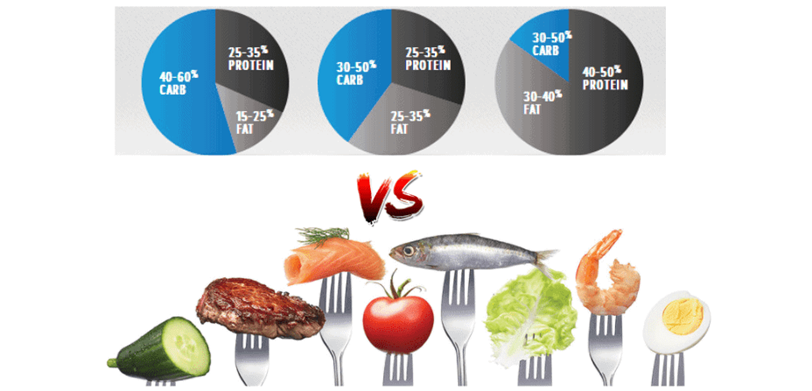Understanding Macros and Micros: Importance for Optimal Health
In the pursuit of optimal health, nutrition plays a fundamental role. It’s not just about eating a balanced diet but understanding the components that make up our food and how they contribute to our overall well-being. Two critical aspects of nutrition are macronutrients (macros) and micronutrients (micros). Both are essential for our bodies to function correctly, but they play different roles and are required in different quantities. This article delves into the importance of macros and micros, their functions, sources, and how to balance them for optimal health.
What Are Macronutrients?
Macronutrients are nutrients that our bodies need in large amounts to provide energy and support overall growth and development. There are three primary macronutrients: carbohydrates, proteins, and fats. Each of these plays a unique role in maintaining health.
Carbohydrates
Carbohydrates are the body’s main source of energy. They are broken down into glucose, which fuels the cells, tissues, and organs. Carbohydrates are categorized into simple and complex forms.
- Simple Carbohydrates: These are sugars found in foods like fruits, milk, and sweets. They are quickly absorbed into the bloodstream and provide a rapid source of energy. However, overconsumption can lead to blood sugar spikes and crashes.
- Complex Carbohydrates: Found in foods such as whole grains, legumes, and vegetables, complex carbs are broken down more slowly, providing a more sustained energy release. They are also rich in fibre, which aids in digestion and helps maintain stable blood sugar levels.
Recommended Intake: Carbohydrates should make up about 45-65% of your daily caloric intake. However, focusing on complex carbs over simple ones can provide more lasting benefits.
Proteins
Proteins are crucial for building and repairing tissues, making hormones and enzymes, and supporting immune function. Proteins are made up of amino acids, nine of which are essential and must be obtained through the diet.
- Complete Proteins: These contain all nine essential amino acids and are typically found in animal products such as meat, poultry, fish, eggs, and dairy.
- Incomplete Proteins: Found in plant-based foods like beans, nuts, and grains, these may lack one or more essential amino acids but can be combined to form complete proteins.
Recommended Intake: Protein should comprise about 10-35% of your daily caloric intake. The amount needed can vary based on factors such as age, sex, and activity level.
Fats
Fats are essential for energy, hormone production, and cell structure. They also help in the absorption of fat-soluble vitamins (A, D, E, and K).
- Saturated Fats: Found in animal products and some plant oils, saturated fats can raise LDL cholesterol levels, potentially increasing the risk of heart disease if consumed in excess.
- Unsaturated Fats: These are healthier fats found in foods like avocados, nuts, seeds, and olive oil. They can help reduce LDL cholesterol levels and support heart health.
- Trans Fats: Often found in processed foods, these fats can increase the risk of heart disease and should be avoided.
Recommended Intake: Fats should account for about 20-35% of your daily caloric intake, with a focus on unsaturated fats over saturated and trans fats.

What Are Micronutrients?
Micronutrients, unlike macronutrients, are needed in smaller amounts but are just as crucial for maintaining health. They include vitamins and minerals, each playing specific roles in the body.
Vitamins
Vitamins are organic compounds that are vital for various bodily functions, including metabolism, immunity, and digestion. They are categorized into water-soluble and fat-soluble vitamins.
- Water-soluble vitamins: These include Vitamin C and the B vitamins (such as B12, B6, and folate). They are not stored in the body and need to be consumed regularly. They are crucial for energy production, red blood cell formation, and nervous system health.
- Fat-Soluble Vitamins: These include Vitamins A, D, E, and K. They are stored in the body’s fat tissues and liver. They play roles in vision, bone health, antioxidant protection, and blood clotting.
Sources: A varied diet rich in fruits, vegetables, whole grains, and lean proteins typically provides an adequate intake of vitamins.
Minerals
Minerals are inorganic elements that support a range of functions, including bone health, fluid balance, and nerve signalling. Key minerals include calcium, iron, magnesium, potassium, and zinc.
- Calcium: Important for bone and teeth health, muscle function, and nerve signalling. Found in dairy products, leafy greens, and fortified plant-based milks.
- Iron: Essential for oxygen transport in the blood. Sources include red meat, poultry, fish, and plant-based options like lentils and spinach.
- Magnesium: Supports muscle and nerve function, as well as bone health. Found in nuts, seeds, and whole grains.
- Potassium: Helps regulate fluid balance and muscle contractions. Found in bananas, potatoes, and beans.
- Zinc: Important for immune function and protein synthesis. Sources include meat, shellfish, and legumes.
Recommended Intake: The required amount of minerals varies by age, sex, and health conditions. A well-balanced diet usually provides sufficient minerals.
Balancing Macros and Micros for Optimal Health
To achieve optimal health, it’s essential to balance both macronutrients and micronutrients in your diet. Here’s how to approach it:
1. Diversify Your Diet
Eating a variety of foods ensures you get a wide range of nutrients. Incorporate fruits, vegetables, whole grains, lean proteins, and healthy fats. Each food group provides different macros and micros essential for health.
2. Portion Control
Pay attention to portion sizes to maintain a balance between macronutrients. For example, ensure that your plate includes appropriate portions of carbohydrates, proteins, and fats. This helps in managing calorie intake and avoiding excessive consumption of any single nutrient.
3. Focus on Nutrient-Dense Foods
Opt for foods that are high in nutrients but relatively low in calories. Examples include leafy greens, berries, nuts, and lean meats. These foods provide essential vitamins and minerals without excess calories.
Support Systems for Those with Chronic Illnesses: A Comprehensive Guide
4. Monitor Your Micronutrient Intake
While it’s less common to be deficient in macronutrients, micronutrient deficiencies can still occur. Pay attention to your intake of vitamins and minerals, especially if you follow a restricted diet or have specific health concerns.
5. Stay Hydrated
Water is vital for overall health and helps with the absorption of nutrients. Aim to drink plenty of water throughout the day, especially if you consume high-fiber foods or engage in physical activity.
6. Consider Supplements
In some cases, dietary supplements might be necessary to fill gaps in your nutrition, especially if you have specific health conditions or dietary restrictions. However, it’s best to get most of your nutrients from food.
Understanding and balancing macronutrients and micronutrients is crucial for achieving optimal health. Carbohydrates, proteins, and fats are essential for energy, growth, and bodily functions, while vitamins and minerals support a range of health processes. By diversifying your diet, controlling portions, and focusing on nutrient-dense foods, you can ensure that you’re meeting your nutritional needs and promoting overall well-being.
Balancing macros and micros requires a thoughtful approach to eating, but the benefits to your health are well worth the effort. By paying attention to both the quantity and quality of your food, you can enhance your vitality, support your body’s functions, and lead a healthier life.





Post Comment